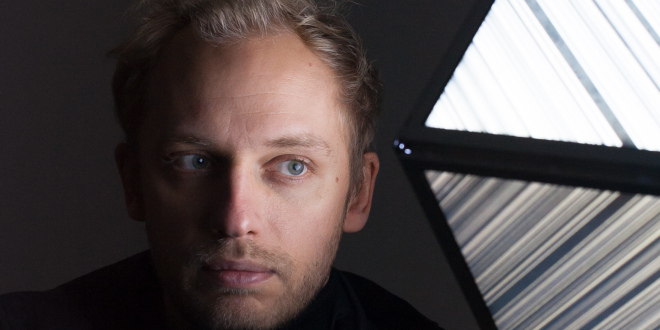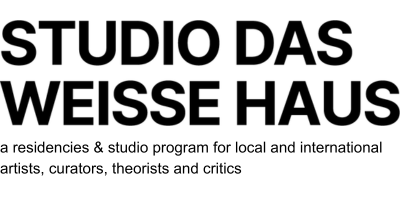Weekly Conversations... with Julian Palacz

Meet Julian Palacz, another one of our local artists whom we briefly visited in his studio in Untere Augartenstraße. Having studied Digital Art at the University of Applied Arts Vienna under Peter Weibel and Virgil Widrich, Julian has been mostly questioning data as an entity. The fascination with the digital world in his works is brought to another level thanks to using new perspectives and a bit of irony. Apart from numerous exhibitions both in Austria and abroad, Julian recently exhibited at Parallel Vienna 2017 and soon will be featured in two group exhibitions: Open Codes – Leben in digitalen Welten at Zentrum für Kunst und Medien in Karlsruhe as well as processing at GPLcontemporary in Vienna.
Could you tell us something more about your upcoming exhibition in Karlsruhe?
Open Codes – Leben in digitalen Welten is going to be a large scale exhibition and I’m very glad that I was chosen to take part in it. I’ll be exhibiting a series of hard drives in combination with a specially engraved glass that illustrates the fragmentation of the data stored on them – a pattern which provides information about the exact location of free and occupied space. The hard drives are actually not working anymore, but their data is now visible on the outside. I find the whole process of how files are being stored, how this landscape is evolving, very inspiring. The longer we keep working with a hard drive, creating, deleting and copying files, the more interesting the fragmentation pattern gets. It is a trace we left, therefore we actually took part in shaping the pattern.
Most of your works would not have been created without the use of modern technologies. How do you feel about them – do you feel rather inspired or worried by the digital world?
Well, in the 50s it was chic to smoke. You saw it everywhere – on TV, in the streets there were big cigarette advertisements and I think it pretty much sums up how we feel about technology now. Because we all love it and we don’t really question it. There has been a shift in the last ten to twenty years where technology became more and more emotionalized. We have established a dependent relationship towards our device or user account. In my work I try not to denounce this worrying development, but to pose gentle questions and make delicate allusions instead.
You are one of the founders of the collective called Traumawien. Can you describe it to a complete outsider who doesn’t know what it is?
It’s a publishing house, established in 2010, by Luc Gross, Peter Moosgaard and me. We publish digital born stories – new forms of literature in the digital age – including memes, tweets, posts, blog entries, generative text, log files, raw keyboard input and many other text forms which emerged with technology and the Internet. We’re also exploring new forms of publishing besides the classical books or e-books: in 21er Haus / Salon für Kunstbuch we presented a clothing and an interior collection called “Post Digital Products”, which consisted of tweets and facebook status updates from various artists and persons of interest, used without permission. Especially interesting here was the question of copyright – using these public statements without permission and then pushing it further: making it a product and finally selling it.
Any other plans in the near future?
I’m taking part in a group exhibition called processing – in Vienna at the gallery GPLcontemporary. The communication between humans and machines by programming software and writing algorithms allows a new way of looking at the generative process. The exhibition combines artistic experiments, questions and definitions that reflect on generative art. Our opening will take place on Wednesday, October 25 at Sonnenfelsgasse 6, 1010 Vienna.
Interviewer for studio das weisse haus: Simona Lacinová
